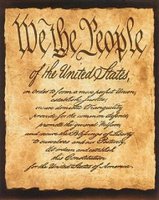 Today I was reading what some people wrote during the antislavery movement (Jarena Lee, David Walker's "Appeal"), about the rights of all people to equality and freedom, no matter the person's race or gender. Amen, I say! That's what our country is supposedly about. That's what we have as our basic credo. But many people also believed this in the nineteenth century when there was slavery and when women were supposed to stay in their own "sphere."
Today I was reading what some people wrote during the antislavery movement (Jarena Lee, David Walker's "Appeal"), about the rights of all people to equality and freedom, no matter the person's race or gender. Amen, I say! That's what our country is supposedly about. That's what we have as our basic credo. But many people also believed this in the nineteenth century when there was slavery and when women were supposed to stay in their own "sphere."It's interesting to me as I reflect on the changes the United States has gone through since then, how little has really changed. Maybe I'm looking at this too cynically (belieing my post from a few days ago about being mainly optimistic...), but perhaps I'm just being realistic...
Anyway, it seems like the country has done as little as it can to change while pacifying those who felt wronged just enough so there's not enough catalyst for further uprisings. Yes, all races are equal in the sight of our laws, but are all people treated equally? Of course not. And yes, women agitated and eventually gained the right to vote and to be educated, etc., but the United States, beacon of equality to the world, has not yet passed an equal rights amendment for women--so it is still true in the good ol' US of A that "all men are created equal," but not necessarily all women.
I will speak here mostly about women, because that is my experience, and I wouldn't want to try to speak for other "minorities." In most ways women are now treated equally: we can go to the same schools and do most of the same jobs. We can even preach in many denominations, we can work outside the home, we don't have to have children or be attached to a man. These are good steps in the right direction. But at the same time, we are not always paid equally for an equal job, there are unfair laws (eg men can get Viagra paid for by their insurance but it won't pay for birth control!), and women are generally not expected to be as intelligent or able as men by society as a whole.
So it seems to me that what our society has changed a few laws and customs, but mainly kept the same rules of the game. If women and other "minorities" can play the white man's game, they're welcome to try--if they want to try to think in the same ways, use the same competitive tactics and speak the same language of logic and linearality (is that a word? It is now because I don't have to play their game... =), if we can do all that then sure, more power to us. But if we try to change the rules we're not allowed to play.
But the laws have changed just enough to pacify us. And in this case I'm not talking about pacifism, where we're actively nonviolent, showing the injustice of the system, but this is pacification which keeps us passive. I, as an American woman, am allowed to do pretty much whatever I want to. I might not get paid well for it, and there might be groups out there who will treat me the same as anyone else, so I probably won't rise up and demand equal rights. But we aren't treated equally. And in all likelihood it is probably worse for other races than for me, as a white woman.
What is our role as Quakers in all of this? We worked hard to get rid of the major problems--we didn't allow slavery or complete subjugation of women. But it seems like we quit before the whole battles were won. We called well enough good. But there's still suffering and inequality going on! What are we going to do about it?
1 comment:
Sebastian,
I agree--it's so important for those who've been oppressed not to just gain power and be oppressive back. Instead we need to change the systems that have caused oppression and try to come up with better ways of relating to one another. That's one of the things I like most about Quakers (at our best). It's true about capitalism that it probably can't occur without oppression, but it's so enticing! It's going to be a long time before the church as a whole disentangles itself from this capitalism it helped form.
Post a Comment